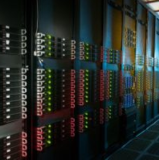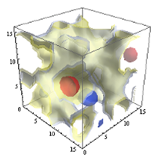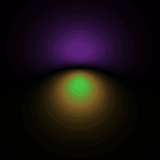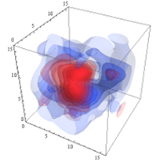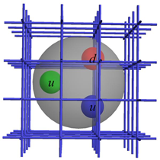LGT4HEP - PIs
Traineeship Managers
Principal Investigator
Huey-Wen Lin (she/her)
Associate Professor
Department of Physics and Astronomy
Michigan State University
Email: hwlin@pa.msu.edu
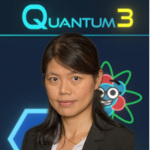
Dr. Lin is a Taiwanese-American physicist and an American Physics Society Fellow since 2022. She designed the phone game Quantum 3, which is free to download from the Apple App Store and Google Play store, and co-creator and manager of My Journey as a Physicist. She uses supercomputers to calculate the quark and gluon structure of baryons and mesons, such as their charges, form factors and parton distributions. She loves her research, because experiments around the world from the LHC to nuclear and neutrino physics can leverage the work to explore the frontiers of fundamental physics. She received an NSF Early-Career Award for her work and was one of the 25 recipients of 2020 Cottrell Scholar Awards. She was a former member of Executive Committees for USQCD (2020-2022) and active member for the APS Division of Nuclear Physics (2022-2024).
co-Investigators
Alexei Bazavov
Professor
Michigan State University
Email: bazavov@msu.edu
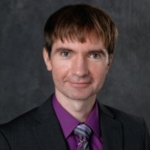
He has been working in LQCD research since graduate school focusing on algorithm development and applications to HEP and NP, in particular, quark-gluon plasma. Since he joined MSU in 2016, he has supervised/been supervising three graduate and two undergraduate students, and participated in the new computational curriculum development at the Department of Computational Mathematics, Science and Engineering including a new course on quantum computation.
co-Investigator
Thomas Blum
Professor
Department of Physics
University of Connecticut
Email: thomas.blum@uconn.edu
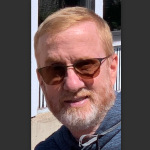
I am a lattice gauge theorist studying hadronic contributions to the muon g-2, CP violation in kaon decays, contributions to the neutron EDM, and the hadronic tensor for nucleon-neutrino interactions. I am a member of the RBC collaboration and Deputy Spokesperson for the USQCD Collaboration.
co-Investigator
Zohreh Davoudi(she/her)
Associate Professor
Department of Physics, Maryland Center for Fundamental Physics
Joint Center for Quantum Information and Computer Science
NSF Institute for Robust Quantum Simulation
University of Maryland, College Park
Email: davoudi@umd.edu
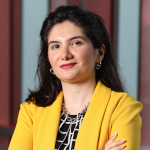
Davoudi is an Associate Professor of Physics, a Fellow of the Joint Center for Quantum Information and Computer Science (QuICS), and the Associate Director for Education at the NSF Institute for Robust Quantum Simulation at the University of Maryland, College Park. She received her Ph.D. in 2014 from the University of Washington in Seattle, and was a post-doc research associate at Massachusetts Institute of Technology's Center for Theoretical Physics from 2014-2017, before joining the physics department at the University of Maryland, College Park in 2017 as a faculty. The focus of her research is simulating complex systems in nature arising from the most fundamental particles and interactions underlying them, or their effective descriptions, using classical and quantum computing methods.
co-Investigator
William Detmold (he/him)
Professor
Department of Physics
Massachusetts Institute of Technology
Email: wdetmold@mit.edu
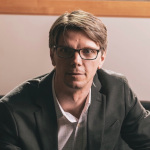
Professor Detmold's research interests are in strong interaction dynamics in theoretical particle and nuclear physics. Detmold uses analytic methods and supercomputers to solve the complex equations of quantum chromodynamics (QCD) that describe the strong interaction and seeks to understand the emergence of hadrons and nuclei from the underlying Standard Model of particle physics. He aims to determine the properties and interactions of these systems from first principles to confront experiment and to make predictions for regimes such as in the interior of neutron stars where experiments are not possible.
co-Investigator
Aida El-Khadra (she/her)
Professor of Physics
University of Illinois Urbana-Champaign
email: axk@illinois.edu
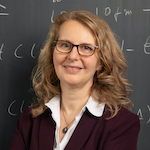
Aida El-Khadra is a professor of physics at the University of Illinois Urbana-Champaign. Her research is in theoretical particle physics, where she works on the development of lattice field theory as a precision tool to quantify the nonperturbative effects of Quantum Chromodynamics needed for the interpretation of measurements in high energy experiments. She pursues a broad program of lattice QCD calculations in flavor physics, with a recent focus on the hadronic corrections to the muon's anomalous magnetic moment. She is a fellow of the American Association for the Advancement of Science and the American Physical Society, as well as a recipient of a Simons Fellowship in Theoretical Physics, a Fermilab Distinguished Scholar appointment, a Sloan Foundation Research Fellowship, among other honors. She currently chairs the Steering Committee of the Muon g-2 Theory Initiative.
co-Investigator
Chulwoo Jung
BNL
Email: chulwoo@bnl.gov
He has been working LQCD research for decades and has been the BNL lead on the USQCD Exascale Computing project and SciDAC projects. He is the principle maintainer of the Columbia Physics System and is an expert in the development of lattice software for DOE supercomputers of all types.
co-Investigator
Andreas Kronfeld (he/him)
Distinguished Scientist
Theory Division
Fermilab
Email: ask@fnal.gov
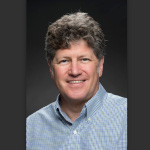
In his 40-year career, Andreas Kronfeld has been involved in many aspects of lattice gauge theory, including algorithm development, methodology for reducing discretization errors, and guiding high-performance computing projects. His best known work has been a suite of calculations that, combined with measurements from experiments, pin down the fundamental parameters of the Standard Model.
co-Investigator
Ethan Neil (he/him)
Associate Professor of Physics
University of Colorado, Boulder
Email: ethan.neil@colorado.edu
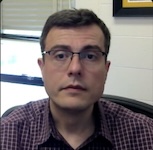
Prof. Neil is a particle physicist mainly interested in strongly-coupled physics and physics beyond the Standard Model. He is mainly interested in using lattice methods to study models such as composite dark matter and interesting non-perturbative phenomena such as emergent conformal symmetry. He has also spent time working on collider phenomenology and statistical methods, and on lattice QCD as a member of the Fermilab-MILC collaboration (most recently focusing on muon g-2).
This traineeship is sponsored by DOE HEP Computing traineeship.
